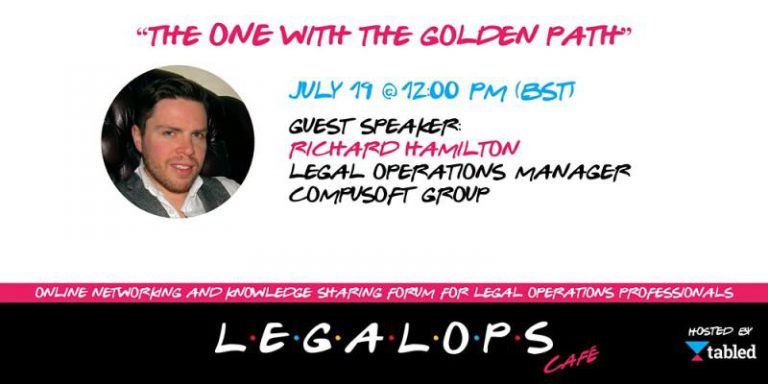The Legalops Café is an online meetup hosted by Tabled for legal operations professionals looking to network and share insights.
To register for updates and invitations to future sessions please join our Linkedin Page: Register interest for future sessions.
In July’s session of the Legalops Café, we discussed the benefits and practicalities of creating standard self-service processes for legal workflows meaning the legal or compliance team don’t have to be involved every time.
Our guest speaker was Richard Hamilton who shared some insights into how he has been approaching this as Legal Operations Manager at Compusoft. Here are the key takeaways:

Richard’s inspiration for the ‘Golden Path’ comes from the Dune sci-fi novels. In those stories, the ‘Golden Path’ is an all-encompassing map of the future setting out all possible iterations of the future and revealing which of these paths gives humanity its best chance of survival. Nothing too deep then!
In the context of legal operations, the idea is to identify the conditions in which a particular pre-approved workflow e.g. the conclusion of a particular contract – can and should be concluded by the business by following a self-service process or ‘Golden Path’, without the need for involvement from the legal team.
Discussions around setting up client self-service portals using Tabled, effectively triage, prioritise and manage legal work and projects are of course close to our hearts at Tabled and if you are interested in these topics you might also enjoy our blog posts on the Legal Front Door, Matter Management and how to become a more data-driven legal team.